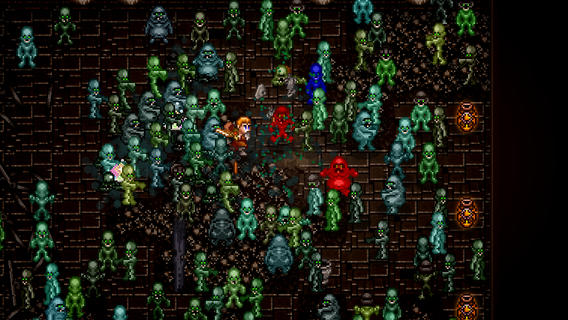Now I can die again and again on the go!
Concepts like permadeath and roguelite design don't often coexist with mobile games, and yet iOS dungeon crawler Wayward Souls embraces the initial contrast and reveals layers of both simplicity and depth that suit the platform brilliantly. Small mistakes lead to swift deaths, but the urge to play just one more game constantly taunts the player and his or her battery life. It results in the kind of pick-up-and-play experience that finds a comfortable home on iPhones and iPads, but at no point did I find Wayward Souls to be an inherently lesser experience because of its distinction as an iOS release. What we have here is a fantastic game, regardless of platform.
Much of Wayward Souls' success manifests in its structure, in which levels are randomly generated and death is permanent. It clearly takes inspiration from titles like Spelunky, but the game manages to craft its own identity by adding variety and meaningful rewards to the familiar formula. After the initial tutorial, players are allowed to choose one of three heroes: warrior, mage, or rogue. The game includes a few more unlockable classes, but the first three alone provide a satisfying level of variety as each one requires a different playstyle. The warrior—a personal favorite—has the freedom to be more aggressive, whereas rogues focus on backstabs and mages rely on ranged attacks. Each class comes with its own distinct nuances, and special abilities also vary from one character to the next.
Players must master different characters and special abilities to overcome the obstacles presented in Wayward Souls. Don't come in expecting an easy experience—this game takes joy in destroying the player. It's not quite as extreme as other similarly designed games, but just a few mistakes in the presence of a formidable boss or a horde of smaller minions results in a quick game over screen. The game provides plenty of tools to help even the odds though, including usable items (dust that slows down time, health potions, etc), in-game forges to upgrade equipment, and player progression.
The latter may not sound like it belongs in a game like Wayward Souls, but much like last year's Rogue Legacy, it adds incentive that transcends the simple fun of playing the game. Gold earned in a playthrough can then be used to purchase upgrades for each specific class. I didn't get far the first few times I played the game, but I slowly built my warrior into an axe-throwing machine. It signifies a kind of dual growth, in which both the player and the character improve over time. Experiencing that transformation stands as one of Wayward Souls' greatest strengths.
Wayward Souls gets a lot right, but it does have a few small issues. The game breaks things up into three separate levels, so there's no need to beat the entire adventure in a single sitting—a smart decision for a mobile release. Unfortunately, each of the three environments offer little in the way of surprises or inventive art design. The mines, tower, and catacombs are all rather generic outside of a few special rooms here and there.
Controls present another problem, though I found the touch-specific actions to be reliable for the most part. Players move with the left thumb, attack with the right thumb, and swipe up/down for special attacks. It's an effective control scheme, but movement leaves a lot to be desired, especially on iPhones. In addition, I had trouble using the swipe up attacks on the iPad, an issue I did not have on my phone. The inconsistency leads to occasionally frustrating moments, but for the most part they are few and far between. It's the kind of control scheme that becomes more comfortable with repeated play.
The game's touch controls establish Wayward Souls as a title for mobile devices, but its carefully constructed mechanics and depth signify something more. The steep difficulty and player progression keep the player coming back for more, and the wealth of content offered by the $5 game rivals downloadable releases on PCs or consoles. It just goes to show that games with bold design and content-rich features can find a home on any platform.
-
Expert roguelite design
-
Player progression
-
Satisfying challenge
-
Plenty of content
-
Occasional issues with touch controls
-
Generic environments
-
Will go up in price with new updates
Wayward Souls
-
Wayward Souls #1
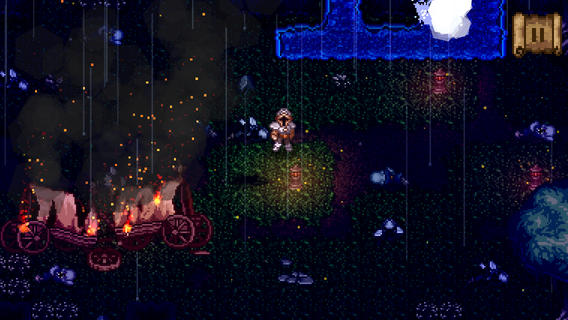
-
Wayward Souls #2
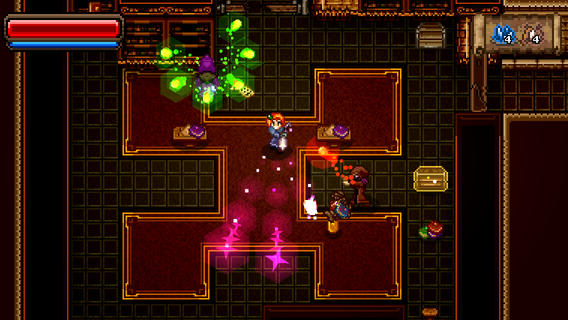
-
Wayward Souls #3
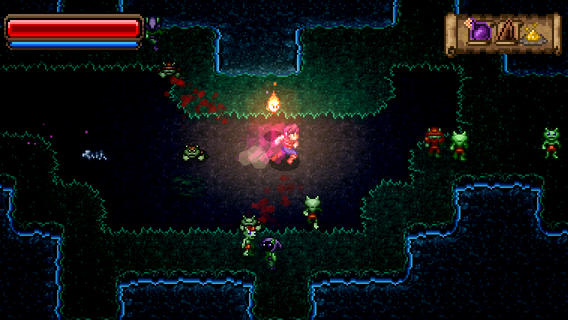
-
Wayward Souls #4
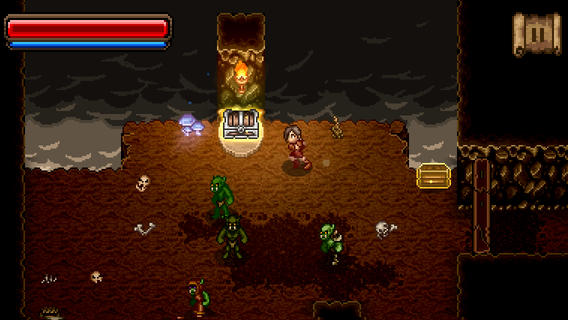
-
Wayward Souls #5
